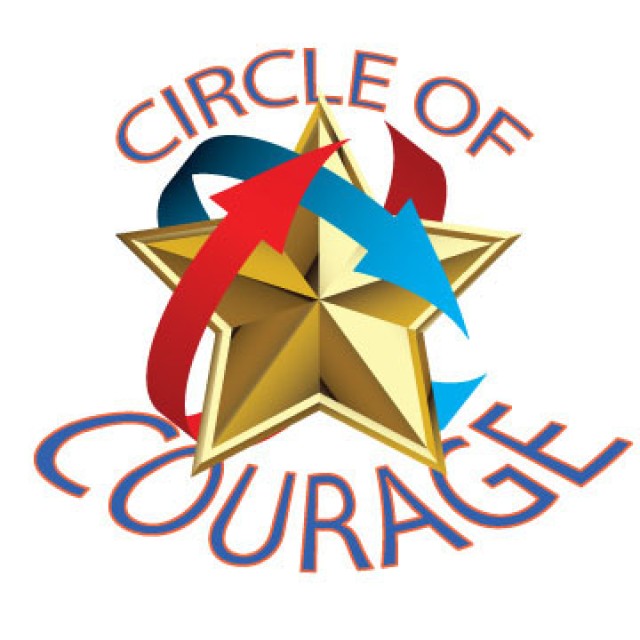The quotes below are actual statements provided by therapists and doctors.
They are intended to help those who might find themselves in a situation similar to the discussions in this article.
"I don't know how much longer I can do this job. It is taking its toll on me physically and emotionally. I don't know what I will do to make ends meet if I quit, but I know if I stay here something bad is going to happen either to me or one of my patients. No one should be under this kind of stress for this long. I have no idea how much damage I have done to myself or how much good I am even doing anymore. Sometimes I just feel like I need to drink or take something just to survive."
- Civilian health care provider, 10 years
"There I was in my hotel room, getting ready for bed, when I saw my bottle of Prozac and for an instant I envisioned myself swallowing the whole bottle. I did not necessarily want to die but I felt I would rather be in a coma because at least then I could rest and restore myself. I give and give and give until there is nothing left. I feel like a wet piece of paper clinging to the side of the road in a rainstorm. Just like the paper, I don't really want to let go but don't know how I can keep hanging on."
- Licensed Psychologist, health care provider, 5 A,A1/2 years
"I only take over-the-counter medications while I am at work. I wait until I get home to take the good stuff like my Vicodin and Xanex. I don't worry about getting caught because if I come up hot I have legal prescriptions for both medicines."
- Licensed clinical social worker, 3 years
December is Substance Abuse Awareness Month, and this article will focus on two current hot topics currently affecting health care providers across the Department of the Army.
These issues, often considered taboo, remain largely ignored or glossed over by those who fear loss of their job or the label of impaired provider. The first issue is compassion fatigue among our health care providers and the second is prescription pain medication abuse. How might these seemingly two unrelated topics have anything to do with each other you might ask'
The very nature of substance abuse and substance dependence is cunning and baffling and has the potential to affect anyone at some point in their life.
Add in extreme psychological and emotional stress and you have the perfect recipe for trouble. In many cases, abuse begins with legitimate pain and a real need for pain relief. In the beginning, taking a Vicodin or Percocet at the end of the day or first thing in the morning to quell a migraine or help with severe back pain is seen not as problematic, but simply a way to deal with pain.
Over time however, the numbing effect of the synthetic opiate can become very alluring and before long the individual may find themselves using a substance when there is no physiological need for it. All too quickly, medications once used for pain now become a prescription for the blunting of emotions, stress relief, and coping.
It is no surprise that health care professionals and caregivers are known to be more prone to stress and its effects on the body and mind. So what is compassion fatigue and why is it so linked with substance abuse' Some articles and journals refer to compassion fatigue as a deep physical, emotional, and spiritual exhaustion accompanied by acute emotional pain.
It has been compared to falling into a deep hole, and those who have experienced it have no idea how to stop the downward spiral. It takes a toll not only on the health care provider, but also on the workplace, causing decreased productivity, more sick days, and higher turnover.
Symptoms associated with compassion fatigue include sadness, exhaustion, irritability, low self-esteem, absenteeism, substance abuse, questioning of the meaning of life, loss of hope or purpose in life, and anger at God, to name a few.
The Madigan Personnel Health Program identifies providers and staff with direct patient contact who have developed medical, behavioral or substance abuse problems, and helps them get back to practicing safe medicine. The strictly confidential program reinforces Madigan's responsibility to its patients and its staff, said Lisa Danforth-Lewis, chief of Quality Services Division. For more information about the Personnel Health Program, call (253) 968-3103.
Substance Abuse as defined by the DSM-IV is a maladaptive pattern of substance use leading to clinically significant impairment or distress as manifested by one (or more) of the following occurring within a 12-month period.
1. Recurrent substance use resulting in a failure to fulfill major role obligations at work, school, or home
2. Recurrent substance use in situations in which it is physically hazardous
3. Recurrent substance-related legal problems
4. Continued substance use despite having persistent or recurrent social or interpersonal problems caused or exacerbated by the effects of the substance
If you suspect you may have issues with substance abuse of any kind, you can call (253) 967-2202 or stop by the main SARD/ASAP office located off Pendleton Ave. in Building 2008.
Not surprisingly, self-referrals to the Army's new Confidential Alcohol Treatment and Education Pilot program have increased steadily since Aug. 24, when the new pilot program began.
The need for a safe place to go and access help for substance abuse or behavioral health without fear of reprisal or ridicule is very important, now more than ever. Madigan Healthcare System and two other Army installations are the first of their kind to offer such anonymity.
CATEP's hours of operations are Tuesday through Friday, from noon to 9 p.m., or Saturday, from 9 a.m. to 5 p.m. Please call (253) 968-4364 for further information.


Social Sharing